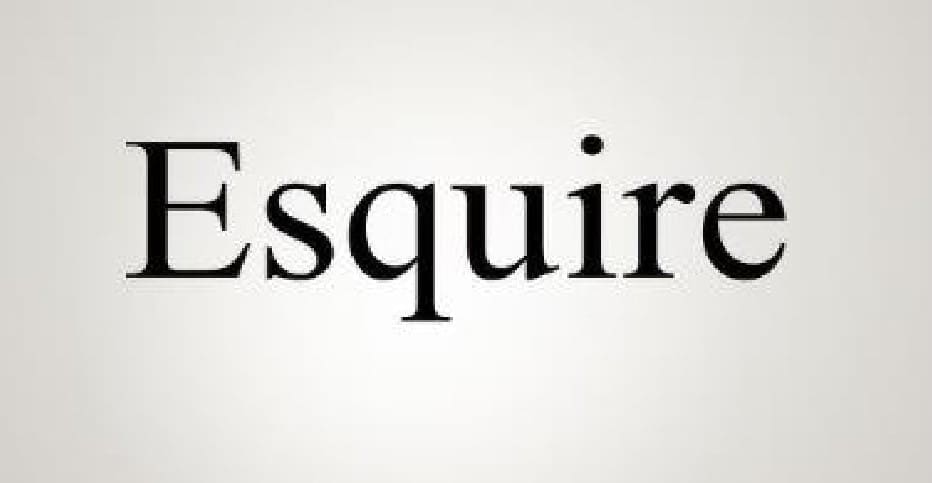An Introduction on Esquire: Origins and Significance
The history of the term “esquire” is long and is usually found in formal situations, such as in the legal arena. It is a title to address lawyers in the United States, but its use in the past is significantly more than the present.
It is a title of respect, of formality, that signifies the lineage and meaning that it embodies. In simple terms, esquire’s meaning was traditionally reserved for men above men of lesser social rank in England. Today, it can refer to attorneys in the United States only.
Buckle up as we learn where the term came from, what it means, and why it is still relevant, so let’s get started!
Where Did the Term Esquire Come From?
The term “esquire” comes from medieval England, where it was used as a differentiator for status that was one below that of a knight. The term is also derived from the Old French word “esquier” or “escuier,” referring to a person who held a shield.
Esquires were young men who were typically in training to become knights and functioned as attendants, bearing the knight’s shield and weapons. These early esquires were privileged youths, and they were not just servants but were learning the skills, duties, and behaviors expected of warriors to become knights.
With the development of the feudal system, esquire became a title used to denote a gentleman who had not yet been given a title; it implied honorary standing in the gentry class.
How Did Esquire Come to Be Used in Law?
Esquire in the United States came to be associated with law and became a title used by licensed attorneys. Licensed attorneys started to use esquire as a title to denote they were authorized to represent someone as an attorney who had professional credentials and prestige.
Unlike England, where the use of esquire can still connote social rank, in America, it is more of a courtesy and professional distinction. The early lawyers of the United States made use of the word to reflect their public duties and to demonstrate to the public that they were leaders in the community practicing law.
There is no rule against a lawyer not using “esquire,” but it became an accepted symbol of authority and respect through custom. The American Bar Association indicates that lawyers can add “Esq.” behind their name in letters and legal documents after passing the state bar exam.
Why is the Title Esquire Still Important?
Keeping with the importance of esquire shows it is a symbol of professionalism and reliability. It may hold no legal authority, but it is a useful title to identify licensed lawyers in correspondence formats and formal circumstances.
Some law firms and legal professionals expect customary usage of the title as an additional form of professionalism. Outside the legal sector, esquire may sometimes appear as an honorific type of title in the UK and other English-speaking countries to denote men of a certain stature.
However, this current usage is mainly ceremonial, and a professional designation really has no formal rights or duties, nor is it associated with formal rights or responsibilities.
Key Takeaways
- Originated as a title for a man in the Middle Ages who was a shield carrier to knight training.
- Developed into a term to denote social status in the gentry.
- In the U.S., the term is used exclusively as a reference to a licensed attorney.
- Esquire is used as a professional courtesy in any correspondence and written communication and is used behind the lawyer’s name.
- It helps give the communication respect and professionalism.
- Esquire is not a legal qualification nor is it a legal qualification or degree in and of itself.














